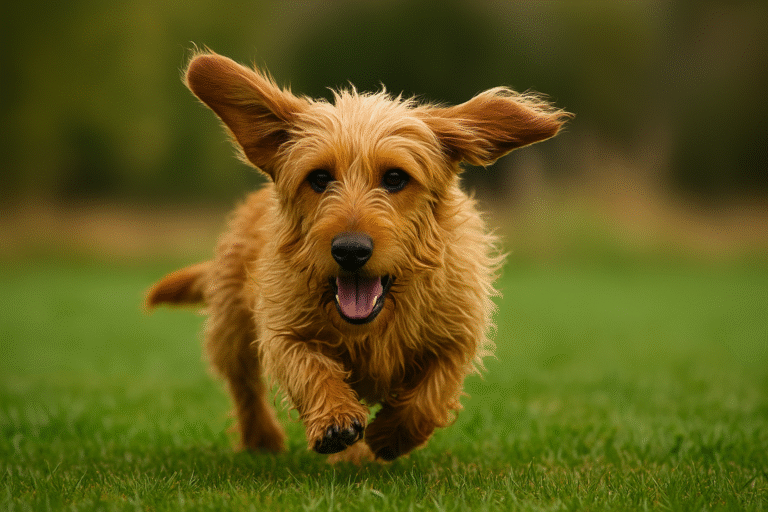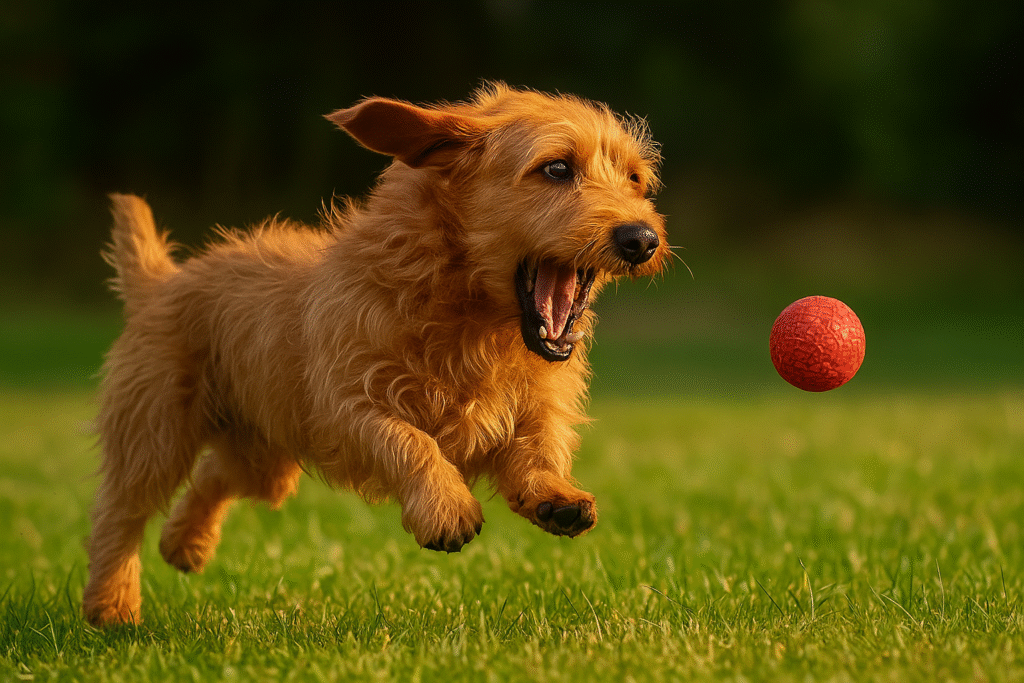Basset Fauve De Bretagne Dog Breed
The Basset Fauve De Bretagne is a lively, affectionate and determined small hound that carries centuries of French hunting tradition. Known for its rough coat, keen nose and friendly personality, this breed is equally at home in the field or curled up with its family. With a big heart in a small body, the Basset Fauve is a true companion for active households.
1. History of the Basset Fauve De Bretagne
The Basset Fauve De Bretagne originated in France and is one of the oldest scent hounds from the Brittany region. They were bred down from the larger Grand Fauve De Bretagne, a breed once used to hunt wolves and wild boar. When big game became scarce, hunters developed a smaller dog that could track rabbits, hares and foxes with the same determination.
By the 19th century, the Basset Fauve had become a favorite among French hunters for its endurance, excellent nose and cheerful temperament. Today, the breed is loved worldwide as both a hunting partner and a loyal family dog.
2. APPEARANCE
The Basset Fauve De Bretagne is a small, sturdy hound standing 32 to 38 centimetres at the shoulder and weighing around 16 to 18 kilograms. Despite its size, it is muscular and agile.
Their rough, dense coat is one of their defining features, providing protection against thorns and harsh terrain. Coat colours range from fawn to red-wheaten, often giving them a warm golden appearance. The head is expressive with dark oval eyes, ears set low and carried close to the cheeks, and a slightly tapering muzzle.
3. Personality and Temperament
The Basset Fauve is cheerful, affectionate and full of determination. They are loyal companions who bond closely with their families and thrive on affection. With children they are playful and gentle, and with other dogs they are usually sociable, especially if raised together.
Their hunting background means they are energetic and independent thinkers. They love to follow scents, which can make them wander if not in a secure area. Training should be consistent and positive, with patience to match their strong will.

4. Care and Grooming
The rough coat of the Basset Fauve is low-maintenance, requiring only weekly brushing to remove loose hair. They do not shed heavily and usually need only occasional bathing.
Their ears should be checked regularly to prevent infections, especially since hounds are prone to ear issues. Nails should be trimmed, and teeth brushed to maintain good health. Daily exercise is essential, whether it is a long walk, scent games or off-leash play in a secure space.
5. Health Considerations
The Basset Fauve De Bretagne is a generally healthy breed with a life expectancy of 12 to 14 years. Potential health issues include:
Ear infections – due to their ear shape
Hip dysplasia – although less common than in larger breeds
Cataracts and glaucoma – possible eye conditions in older dogs
Responsible breeding and regular veterinary care help ensure a long and healthy life.
6. Basset Fauve De Bretagne as a Family Pet
The Basset Fauve De Bretagne is a joyful and adaptable family dog. They love to be part of household activities and dislike being left alone for long periods. They are great with children and other pets when introduced properly, and their friendly nature makes them welcoming companions.
They are best suited to families or individuals who enjoy an active lifestyle and can provide opportunities for them to use their keen nose.

7. Is the Basset Fauve De Bretagne Right for You?
If you want a cheerful, energetic and affectionate dog with a touch of French charm, the Basset Fauve De Bretagne could be the perfect fit. They need regular exercise, patient training and plenty of companionship.
For those who meet their needs, this breed rewards with loyalty, playfulness and endless affection — a small hound with a big heart.

